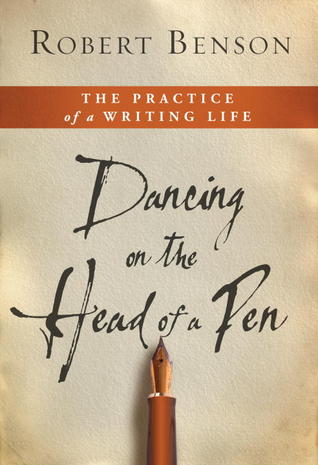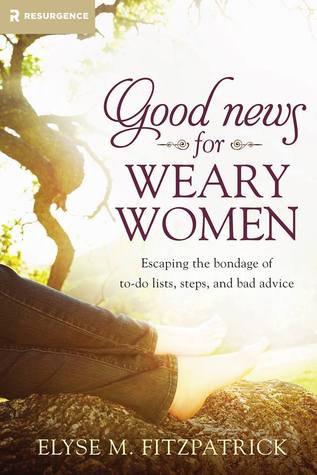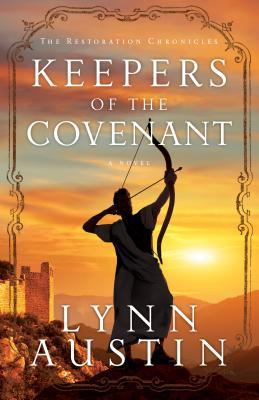It's my pleasure to welcome a fun author who did what I'd once dreamed of doing, and left Australia to live in England, where she currently resides. Autumn is also a loyal supporter of other Christian fiction authors from around the world. I'm so glad she chose to use the brilliant analogy of the labyrinth, which has been on my mind recently too. Make sure to check out her two Christmas stories at the end of the post, which sound like excellent reads for the festive season almost upon us. She is offering a bundle of both new releases as Kindle mobi files for one commenter on this blog post. Now, here's Autumn.
THE LABYRINTH OR THE MAZE?
How did an Australian girl from Sydney end up living in England and writing English set romances, when I came to London seventeen years ago planning a one year working holiday?
The answer is that God sometimes has unexpected plans for us, and sometimes His paths for our lives take us in directions we never imagined. Since I read Paula’s post on her
It Just Occurred blog on labyrinths, I’ve been thinking what an interesting symbol and metaphor labyrinths are. Just like a labyrinth, my life has certainly been full of unexpected twists and turns, though at times it’s felt more like a maze.
By staying in England, I repeated the twists and turns in my father’s life, an Englishman who on a working holiday in Australia back in the late 1950’s met and married my mother, and didn’t return to Britain until he came back to attend my wedding to an Englishman, forty years later!
My spiritual life has followed a similar winding path.
We live not far from this turf maze in Hilton, Cambridgeshire.
Although in Britain labyrinths are called mazes, they are very different to a true maze. Unlike a maze, there are no dead ends in a labyrinth, no blind corners, no wrong choices. A maze is designed to confuse and entrap the walker. In a labyrinth, despite all its loops and curves, now moving closer to the centre, now moving further away, there’s only one pathway. Keep following it, and you will reach the centre. It’s impossible to get lost once your feet are on the path.
The labyrinth is a symbol of our journey toward God. There’s no magic in the labyrinth itself, it’s not what brings us closer to God. But it’s a reminder of the path we are on, the One path that leads to God through Jesus. A symbol, and a powerful one, just like our communion bread and wine or grape juice are symbols of His death for us.
Walked slowly and prayerfully, a labyrinth reminds us to slow down, to focus on God, and on His path for us, rather than our own rush to reach our short term goals.
Once we start into the labyrinth, as long as we keep walking steadily, following the path even when the direction it’s taking seems to make no sense, we will reach the centre. No matter where we are in the journey, we have only two choices, keep moving forward on the winding path that leads ultimately to Him, or turn away from Him and go back.
Even so, our feet are on the path He made for us. Walking the labyrinth is a reminder of obedience to Him.
To follow His long and winding path for our lives, when it looks like there’s an easy and obvious short cut to the centre, when we may be see other getting there sooner. To prayerfully keep our feet on the path on which He sets us. To follow his guidance with joyful obedience even when it seems counter-intuitive and as if it will take us further away from our destination.
That’s been a difficult lesson for me to learn. Too many times, rather than following God’s path, I’ve tried to take short cuts instead of staying on the path He’d laid out for me, and found my paths took me further away from Him, my real goal. And my short term goals, the ones that tempted me from His path, proved elusive anyway.
God tends to lead us on spiral paths, where it can feel as if we’ve made no progress at all when in fact we’ve come a long way. Thankfully, no matter how far we stray from Him, He never lets us go and will always lead us back to the right path again. All it needs from us is the willingness to turn our feet back to his ways again.
In my writing, just as much as my life, I’ve followed a roundabout path. My October release, Believe in Me, a London set Christmas romance with a strong faith element, started life two and a half years ago as a sweet but secular short novella, at a time when I’d chosen to take some big steps away from God’s path for me. Thankfully, the publisher I’d aimed it for rejected the story! It had been longer than they wanted 22,000 words not 15,000, but shortening it the required 30% didn’t do the story much good. Not a surprise really!
I see all those rejections when I was writing secular stories as blessings, as God still working in my life even when I’d chosen to follow my own path not His. I wanted the short cut to fast publication, God had other plans. Like a loving parent, He refused to let me have what wasn’t good for me. He called me out of the maze, and back to the labyrinth, to His path, to living and writing for Him.
And setting my feet on His path had a sense of rightness I hadn’t felt anywhere else. I’ve discovered there’s a comfort in the labyrinth, in the one sure path to the centre. There’s a joy in trusting that the twists and turns will bring us home. When a friend suggested a Christian publisher was looking for a novella with a London setting, I saw how that old rejected Christmas novella needed a faith arc to make it whole. Without God in it, the story was lopsided, like a broken Christmas tree. Only God could give my deeply wounded heroine the healing she needed to turn her from Ms Scrooge into someone who could feel the joy of Christmas again.
Unfortunately that publisher wanted shorter novellas too, so this story wouldn’t fit there, but when I saw the announcement for Harlequin’s So You Think You Can Write contest last year, it seemed Heartsong, one of their Christian romance lines might be a good fit. I began the rewrite of Believe in Me, entered the first chapter, and was blessed and surprised to semi-final, then as a result get an enthusiastic invitation to revise and resubmit the story from the lovely Heartsong editor.
It seemed this story may have found its home. But no, in the revisions the story grew to 60,000 words, far too long for Heartsong. God had other plans. After much prayer, instead of resubmitting Believe in Me to Harlequin, I was guided onto a different path, to indie publish this story.
And so in October, the story will finally be published. It feels so fitting to me that a story with the Prodigal Son or Daughter as a theme was the story God used to call me back to walking His path! I’m sure the labyrinth has plenty of twists and turns, but one thing I can be sure of is that the path leads to Him.
I’m not sure where He’ll lead me in life, but I do know with my stories, there will be several more Love in Store books, set in Britain. Then back to Australia for my Haven Bay series. I can’t wait!

You never forget your first love…
With
her eye for design and her cut-glass accent, no-one would guess Beth
Forrest’s impoverished background. It’s all throw pillows, china
patterns, and upper class brides as she manages the Wedding Registry at
Pettett & Mayfield, the stately maiden aunt of London department
stores. It’s not quite her dream job, but each bride she helps to select
beautiful and oh-so-expensive items for their gift list brings her one
step closer to buying a little home of her own, and financing the
education she longs for.
When physics professor James
Tetherton-Hart, brilliant in his research lab but awkward and
disorganised in everyday life, comes to the store in desperate need of
both a gift and a partner for a wedding that evening and recognises her,
all her careful plans and meticulous checklists are turned upside down.
Now her first love is back, determined to make her his partner for
life, not just the evening. But unless Beth can let go of the mistaken
beliefs that separated them in the past, and appreciate the depth and
breadth of God’s love for us all, her only gift from the wedding will be
another heartbreak.

Bah, humbug!
All Cara Talbot wants for Christmas is for it to be over.
The workaholic accountant has good reason to hate Christmas, along with charmers like actor Nick Callaghan, playing celebrity Santa at the failing London department store she has the thankless job of managing.
She’s determined to save her staff’s jobs, Hollywood golden boy Nick just wants to live up to his Mr Unattached reputation and enjoy life. They couldn’t be more opposite. But if accepting Nick’s dare – dates showing her the magic of a London Christmas – can raise enough publicity to keep the store open, she’ll do it. Even if she risks falling in love with him in the process.
Can this surprising Santa allow love to deepen his untested faith and learn to commit, while helping Ms Scrooge believe in Christmas, and in God, once more?
Book 2 in the Love In Store series of sweet inspirational romances.
Believe In Me semi-finalled in Harlequin’s So You Think You Can Write contest 2013

Autumn Macarthur is an Australian writer of inspirational romance living near London with her very English husband, three spoiled cats, and a guinea pig with a dandelion addiction. She loves reading, cooking, gardening, and writing deeply emotional stories to make you smile and remind you how big and wide and deep God’s love and forgiveness can be.
She tends to talk a little too much and laugh a little too loud, her sleep schedule is all over the place so you’ll often find her on the internet at 5am, and she’s grateful to be blessed with some good friends and a very patient husband. She’s also eternally thankful for God’s great love and mercy.
When she’s not talking to her strawberry plants or cherry blossoms, she can be found blogging at www.faithhopeandheartwarming.com ; on Facebook as Autumn Macarthur, and on Twitter as @autumnmacarthur.
She loves hearing from readers so do get in touch! You can subscribe to her mailing list here- http://mad.ly/signups/116735/join

















.png)






